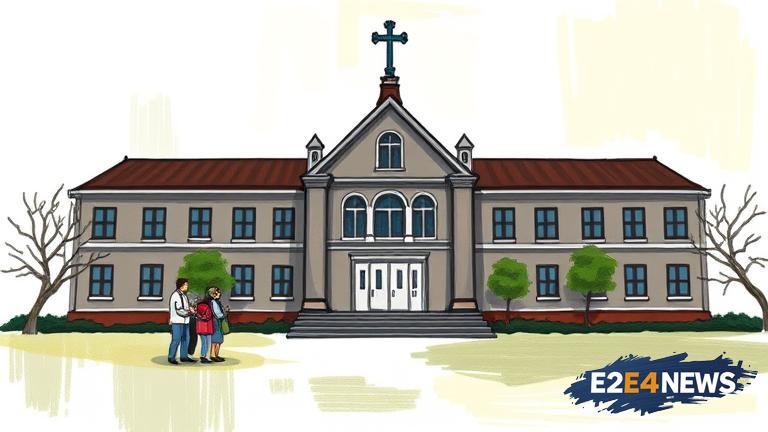A recent report by a Quebec committee has sparked controversy by recommending that the government cease funding private religious schools. The committee’s suggestion is based on the principle of secularism and the need to ensure equal access to education for all students, regardless of their religious background. The report argues that funding private religious schools can create unequal opportunities and perpetuate religious segregation. The committee’s recommendation has been met with both support and criticism from various stakeholders, including educators, parents, and religious leaders. Proponents of the recommendation argue that it is essential to maintain the secular nature of the education system and prevent the promotion of specific religious ideologies. On the other hand, opponents claim that the recommendation infringes upon the rights of religious minorities and limits their access to education that aligns with their beliefs. The Quebec government has not yet made a decision on the matter, but the report has ignited a heated debate on the role of religion in education. The committee’s recommendation is not unprecedented, as other countries have implemented similar policies to ensure the secularization of their education systems. The report also highlights the need for increased funding for public schools, which are often underfunded and overcrowded. Furthermore, the committee suggests that the government should prioritize the development of inclusive and diverse curricula that cater to the needs of all students, regardless of their religious background. The recommendation has also raised concerns about the potential impact on minority religious communities, who may rely on private religious schools for education that aligns with their beliefs. However, proponents of the recommendation argue that public schools can provide adequate accommodations for students of all religious backgrounds. The debate surrounding the committee’s recommendation is complex and multifaceted, involving issues of secularism, education, and religious freedom. As the Quebec government considers the report’s findings, it must weigh the competing interests and values at stake. The committee’s recommendation has also sparked a broader conversation about the role of religion in public life and the importance of maintaining a secular education system. Ultimately, the decision on whether to cease funding private religious schools will depend on the government’s priorities and values. The report’s findings and recommendations will likely be subject to further debate and discussion in the coming months. In conclusion, the Quebec committee’s recommendation to stop funding private religious schools has significant implications for the education system and the broader society. As the government considers the report’s findings, it is essential to prioritize the values of secularism, equality, and inclusivity. The committee’s recommendation has the potential to shape the future of education in Quebec and promote a more inclusive and diverse society. The report’s emphasis on the importance of secularism and equal access to education is a crucial step towards creating a more just and equitable society. Moreover, the committee’s recommendation highlights the need for ongoing dialogue and debate about the role of religion in education and public life. By engaging in this conversation, Quebec can work towards creating a more inclusive and secular education system that caters to the needs of all students, regardless of their religious background.
